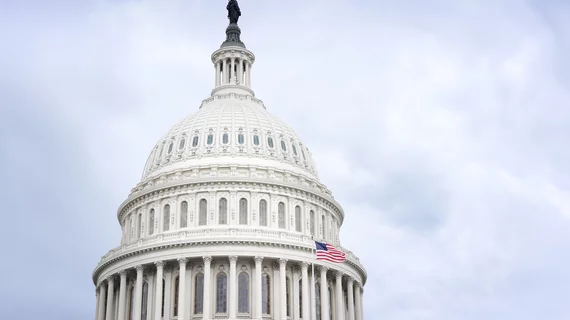ACR lays out 3 legislative priorities to help radiology practices get back to business
As Congress contemplates future legislative measures to address COVID-19’s impact on the economy, the American College of Radiology is offering a few possible remedies.
The college said Wednesday that its government relations team continues to press lawmakers with potential policy recommendations that could bring financial stability to both consumers and hard-hit provider groups.
“The ACR and others in the healthcare community believe aggressive action is necessary to ensure physician practices can resume and maintain routine patient care, address the need for ongoing COVID-19-related services and simultaneously recover from the negative economic impacts of the current public health emergency,” the college said in a April 29 news post.
Its top priorities can be distilled down to three overarching categories:
1) Continue directing financial support to physicians through small-business loans and other means.
2) Promote long-term financial stability and recovery by waiving budget neutrality requirements, extending sequestration relief and ending the six-year doc payment freeze.
3) Ease barriers to providing care by securing a moratorium on prior authorization policies used by payers, and shielding radiologists from legal liability when serving on the pandemic’s front lines.
“This list may not be exhaustive, but the ACR believes the aforementioned policy recommendations represent critical and necessary steps toward establishing financial stability for physician practices and ensuring access to care for their patients,” the college added, noting that it’s waging a concerted advocacy campaign through May to make these wishes a reality.
Read more on the ACR’s legislative priorities here.

